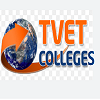What Courses Are Not Funded By NSFAS?
What Courses Are Not Funded By NSFAS? Does NSFAS fund office administration courses?
For South African students wishing to pursue higher education, the National Student Financial Aid Scheme (NSFAS) is an essential resource. A few courses are not covered by the NSFAS, despite the fact that it provides funding to qualified students for a broad variety of courses. To help prospective students make an informed decision, we will examine which courses are typically not funded by NSFAS in this post. Part-time studies at universities, courses provided by private colleges or private higher education establishments, and short courses are not covered by NSFAS.
Courses Not Funded by NSFAS: Does NSFAS fund office administration courses?
While NSFAS is a generous program, there are certain courses that may not be eligible for funding due to various reasons, including the nature of the course and the availability of alternative funding sources. Here are some examples of courses that may not be funded by NSFAS:
- Short courses
- Courses being done through a private college or private higher education institution
- Part-time studies
- Postgraduate studies
- Second degrees
- Postgraduate qualifications
- Private institution courses
- A second undergraduate qualification
Remember that NSFAS eligibility requirements and policies are subject to change, with occasional updates or exceptions possible. Therefore, for the most recent information regarding course eligibility, it is advised to check the most recent NSFAS guidelines and visit the NSFAS website.
Requirement for NSFAS
The requirements to qualify for an NSFAS bursary are as follows:
Universities
- Must be a South African citizen
- Must be applying or accepted at a University
- SASSA grant recipients immediately qualify
- Must have a household income below R350 000 per year
- If you’re a person living with a disability, your household income must come to R600 000 or less
TVET Colleges
- Must be a South African citizen
- Must be registered or intending to register on a PLP, NC(V) or Report 191 programme at a TVET College
- Must have a household income below R350 000 per year
- If you’re a person living with a disability, your household income must come to R600 000 or less
- Returning students must demonstrate proven and accepted academic performance in line with the College’s progression policy or the progression prescriptions of the Bursary Rules and Guidelines
- Must not be enrolling for a qualification that duplicates previous learning that was state-funded
Alternative Sources of Funding for NSFAS
Do not give up if you want to enrol in a course that is not normally covered by NSFAS. There exist alternative funding sources, including grants, bursaries, and scholarships offered by private, public, and educational institutions. Furthermore, students who are self-funded or have a job may find part-time, non-accredited courses to be more cost-effective.
While NSFAS provides crucial support to many South African students, there are certain courses that may not be funded due to various factors. It’s essential for prospective students to be aware of the course eligibility criteria and to explore alternative funding sources when necessary. By understanding the guidelines and seeking other opportunities, students can pursue their chosen courses and achieve their educational goals. APPLY NOW
RELATED LINKS:
- How Do You Know If You Are Not Funded By NSFAS?
- Private Tvet Colleges 2024
- Tvet Colleges Funded By NSFAS In Gauteng 2024
Contact NSFAS
For general, student and NSFAS Wallet enquiries
For all other queries regarding students:
Tel No.: 08000 67327
Email: info@nsfas.org.za
Physical Address
The Halyard, 4 Christiaan Barnard St,
Cape Town City Centre, Cape Town, 8001
